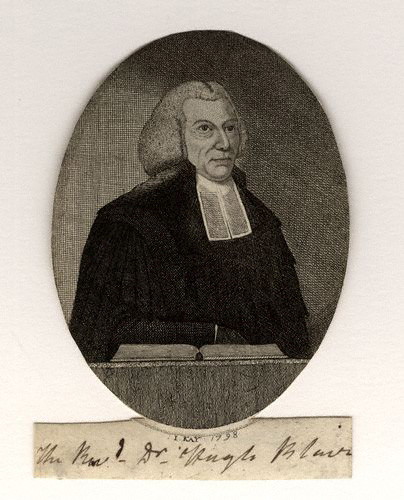Źródło: Lectures on Rhetoric and Belles Lettres (1783), London 1787, s. 11, 12, cyt. za: S. Pazura, De gustibus, s. 34.
Hugh Blair cytaty
„Czasy, które nazywamy barbarzyńskimi, są najbardziej korzystne dla ducha poetyckiego.”
Źródło: A Critical Dissertation on the Poems of Ossian, the Son of Fingal (1763)
Hugh Blair: Cytaty po angielsku
Źródło: Dictionary of Burning Words of Brilliant Writers (1895), P. 109.
Źródło: Dictionary of Burning Words of Brilliant Writers (1895), P. 420.
Quoted in A Dictionary of Thoughts: Being a Cyclopedia of Laconic Quotations from the Best Authors of the World, Both Ancient and Modern, https://books.google.com/books?id=zlMxAAAAIAAJ ed. Tryon Edwards, F. B. Dickerson Company (1908), p. 23.
Źródło: Dictionary of Burning Words of Brilliant Writers (1895), P. 501.
Źródło: Dictionary of Burning Words of Brilliant Writers (1895), P. 4.
Źródło: Dictionary of Burning Words of Brilliant Writers (1895), P. 493.
Źródło: Dictionary of Burning Words of Brilliant Writers (1895), P. 481.
Źródło: Dictionary of Burning Words of Brilliant Writers (1895), P. 345.
Lectures on Rhetoric and Belles Lettres (1784), Lecture XLIII: Homer's Iliad and Odyssey—Virgil's Aeneid.
Reported in The Saturday Magazine (September 28, 1833), p. 118 https://books.google.com/books?id=jh_nAAAAMAAJ&pg=118.
Źródło: Dictionary of Burning Words of Brilliant Writers (1895), P. 242.
Źródło: Dictionary of Burning Words of Brilliant Writers (1895), P. 550.
“The great standard of literature as to purity and exactness of style is the Bible.”
Źródło: Dictionary of Burning Words of Brilliant Writers (1895), P. 386.
Lectures on Rhetoric and Belles Lettres (1784), Lecture I: Introduction.
Źródło: Dictionary of Burning Words of Brilliant Writers (1895), P. 175.
Can it alter the cause, or unravel the mystery of human events?
Quoted in A Dictionary of Thoughts: Being a Cyclopedia of Laconic Quotations from the Best Authors of the World, Both Ancient and Modern, https://books.google.com/books?id=zlMxAAAAIAAJ ed. Tryon Edwards, F. B. Dickerson Company (1908), p. 23.
